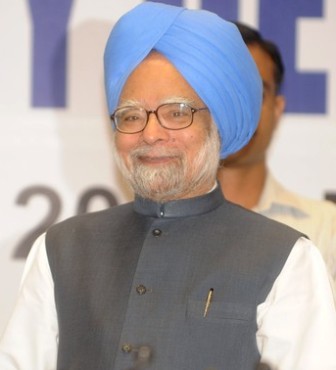Meeting on ASEAN sidelines, India, China agree to further strategic partnership
 Hua Hin (Thailand), Oct. 24 : The Prime Ministers of India and China met here on Saturday morning on the sidelines of the Seventh ASEAN Summit, and decided to take steps to further their bilateral strategic partnership.
Hua Hin (Thailand), Oct. 24 : The Prime Ministers of India and China met here on Saturday morning on the sidelines of the Seventh ASEAN Summit, and decided to take steps to further their bilateral strategic partnership.
Prime Minister Dr. Manmohan Singh and Premier Wen Jiabao agreed that in the wake of the recent aggressive posturing and verbal broadsides on issues of importance to both countries, including the territorial status of Arunachal Pradesh and how both sides viewed the position of Tibetan spiritual leader, The Dalai Lama, that there was a need to build trust and understanding.
On Friday, Indian Foreign Secretary Nirupama Rao said issues of conflict arising between India and China would be discussed by leaders of both countries.
“Well the bilateral relationship that we have with China will obviously be in focus during the forthcoming meeting between our Prime Minister and Chinese Premier Wen Jiabao in Thailand. And this is a relationship that is, that has developed in many many areas in recent years,” Rao said.
“It''''s also a relationship that is a complex one, you are aware of the outstanding issues that remain to be resolved between India and China and obviously in meetings of this nature especially the meetings between the leadership at the highest level there is an opportunity to address all these issues,” she added.
Rising tensions were evident recently when China attempted to block an Asian Development Bank (ADB) loan to Arunachal Pradesh and objected to Prime Minister Manmohan Singh’s visit to the state earlier this month ahead of assembly elections in that state.
Commenting on the scheduled visit of the Dalai Lama to Arunachal Pradesh next month, Rao said: “I have said this before, and the Government has said this before, that His holiness, the Dalai Lama, is respected religious and spiritual figure.”
“The Tibetan community in India is not expected to undertake any political activity, that is our consistent position. And we also said that Dalai Lama is free to travel anywhere in India,” she added.
On the plus side, India and China have signed a major agreement on cooperation in addressing climate change issues.
The five-year agreement was signed by Environment and Forest Minister Jairam Ramesh and China’s Minister for National Development and Reforms Xie Zhehua. It calls for cooperation on various issues related to climate change at various levels.
Speaking on the occasion Zhehua said China considers India a sincere and devoted friend and expressed confidence that both countries would make a positive contribution at the Copenhagen Summit.
"Both India and China are collaborating to ensure a fair and equitable outcome at Copenhagen. An outcome that is in keeping with the principles of the Rio Convention of 1992, the Kyoto Protocol of 1997 and the Bali Action Plan of 2007. There is to my mind virtually no difference between the Indian and the Chinese negotiating position," Ramesh said
"We will be discussing further what India and China should be doing to ensuring a successful outcome at Copenhagen that fully protects and promotes, not only protects but also promotes the interest of developing countries like China and like India," he added.
An Indian studies expert at the Chinese Academy of Social Sciences, Sun Shihai, has said that both China and India have to adopt a more flexible approach to their ties, which are maturing with border talks and growing cooperation.
" The two sides still lack enough trust. So, it is normal to see some problems emerge now and then," the China Daily quoted Sun, as saying.
He suggested the two sides should calm down to "take some flexible approaches to tackle the problems." (ANI)